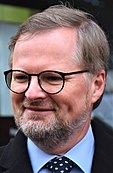User:Holynia/Sandbox6
| |||||||||||||||||||||||||||||||||||||||||||||||||||||||||||||||||
All 700 seats in the Council of Regions and Council of Representatives 101 seats needed for a majority | |||||||||||||||||||||||||||||||||||||||||||||||||||||||||||||||||
|---|---|---|---|---|---|---|---|---|---|---|---|---|---|---|---|---|---|---|---|---|---|---|---|---|---|---|---|---|---|---|---|---|---|---|---|---|---|---|---|---|---|---|---|---|---|---|---|---|---|---|---|---|---|---|---|---|---|---|---|---|---|---|---|---|---|
| Opinion polls | |||||||||||||||||||||||||||||||||||||||||||||||||||||||||||||||||
| Turnout | 67.26% ( | ||||||||||||||||||||||||||||||||||||||||||||||||||||||||||||||||
| |||||||||||||||||||||||||||||||||||||||||||||||||||||||||||||||||
| |||||||||||||||||||||||||||||||||||||||||||||||||||||||||||||||||
The 2024 Holynian Parliamentary Election was held on May 7, 2024, to elect members to the 9th Holyn Národná Rada, the national legislature of the Holyn Kingdom. This election determined the makeup of both houses: the upper house, known as the Council of Regions, with 100 seats; and the lower house, the Council of Representatives, which holds 600 seats.
In the Council of Representatives, the ruling National Renewal party, led by Prime Minister Renáta Mišurová, secured 275 seats, a decline from the 301 seats they held after the 2019 election. The center-right Civic Party won 36 seats, while the main opposition, the Workers' Party of Holynia, gained significant ground with 161 seats. National Renewal entered into a support agreement with the Civic Party, allowing Mišurová to form a coalition government.
In the Council of Regions, National Renewal won 37 seats and the Civic Party won 14, consolidating the coalition’s influence in the upper house as well. The election results indicate a continued rightward shift under Mišurová's administration, bolstered by Civic Party support, while also highlighting growing opposition momentum, with the Workers' Party emerging as a substantial counterforce to Mišurová's policies.




